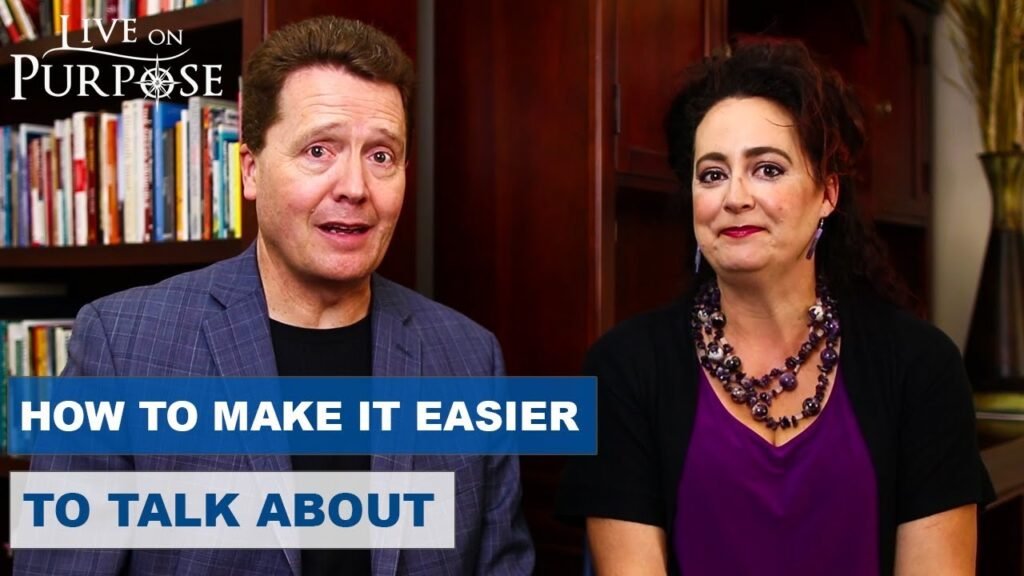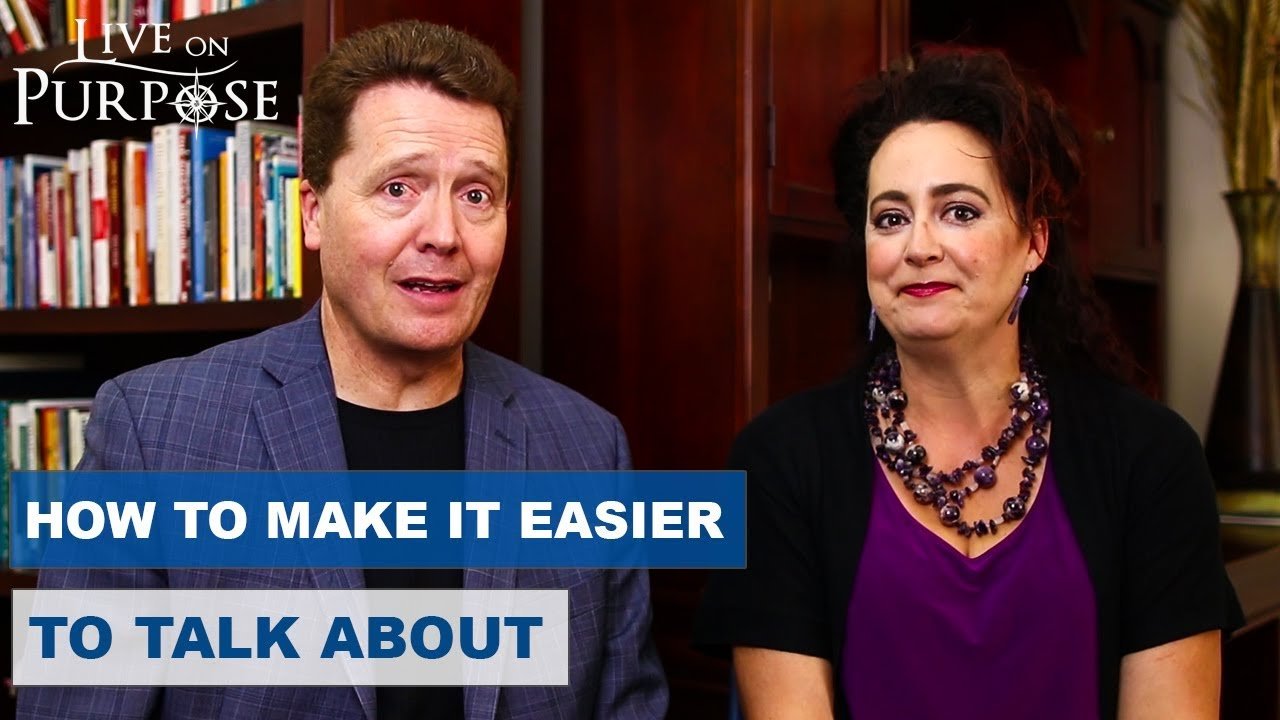Today on Live On Purpose TV, you will have the opportunity to hear from Leta Greene as she discusses an important and sensitive topic: how to talk to kids about sexual abuse. Leta emphasizes the need for educating children about boundaries and body safety, and she highlights the importance of having uncomfortable conversations with children to protect them from potential abuse. Throughout the video, Leta provides valuable insights on using age-appropriate language, teaching kids ownership of their bodies, and promoting open communication. The content also addresses the complexities of discussing sexuality and emphasizes the role of parents in protecting their children. Overall, this video aims to empower parents and promote conscientious parenting when it comes to preventing sexual abuse.
In this engaging and informative video by Live On Purpose TV, join Dr. Paul Jenkins as he invites Leta Greene to discuss how to talk to your kids about sexual abuse. Leta, an expert in this field, shares her knowledge on teaching children about appropriate boundaries and consent. She emphasizes the importance of empowering children to have autonomy over their bodies and making them aware that they have the right to say no to unwanted touch. Leta also touches on the necessity of open and honest communication, the role of parents in protecting their children, and the significance of addressing the issue of secret touching. By sharing this video, we can start a conversation about this important topic and promote conscientious parenting in our communities.
How to Talk to Kids About Sexual Abuse
Talking to your kids about sexual abuse is a serious and sensitive topic, but it is an essential conversation to have in order to protect them. Leta Greene, in her video on Live On Purpose TV, discusses how she educates her own children about boundaries and body safety to help them better understand sexual abuse. It is important to start these conversations at a fundamental level by teaching children about their bodies, safety, and appropriate boundaries. Although these conversations may be uncomfortable, they are necessary for the safety and well-being of your children.

Using Age-Appropriate Language and Teaching Ownership of Their Bodies
When discussing body safety with children, it is crucial to use age-appropriate language that promotes open communication. Anatomical terms should be used instead of euphemisms or pet names for body parts. By using proper terminology, children learn to express themselves and communicate effectively, especially if they ever face a problem or concern. It also helps to prevent shame or fear surrounding their bodies and promotes a healthy view of their physical selves.
Discussing ‘Good Touching,’ ‘Bad Touching,’ and ‘Secret Touching’
To help children understand appropriate boundaries, it is important to discuss the concepts of ‘good touching,’ ‘bad touching,’ and ‘secret touching.’ ‘Good touching’ refers to affectionate touches that are loving and make the child feel safe and comfortable, such as a hug or a tap on the back. ‘Bad touching,’ on the other hand, refers to any kind of touch that hurts or makes the child uncomfortable, such as hitting or biting. ‘Secret touching’ refers to any touch that should never be kept a secret, as secrets can enable potential abuse. By explaining these concepts, children learn to recognize and differentiate between appropriate and inappropriate touches.
Teaching Kids About Their Bodies and Boundaries Empowers Them
Educating children about their bodies and boundaries from a young age empowers them and helps prevent abuse. By teaching them about ownership of their bodies, children develop a sense of autonomy and learn to set boundaries with others. They understand that their bodies are special and that they have the right to decide who can touch them. This knowledge gives them the confidence to protect themselves and speak out against abuse.
Leta Greene’s Video as Part of a Series on Positive Parenting by Dr. Paul Jenkins
Leta Greene’s video on Live On Purpose TV is part of a series on positive parenting by Dr. Paul Jenkins. The video emphasizes the importance of teaching children about boundaries, consent, and body safety. It encourages parents to take an active role in educating their children and highlights the need to teach children that their bodies are special and should be respected.
Allowing Children Autonomy Over Their Bodies
Respecting children’s boundaries and allowing them autonomy over their bodies is crucial for their overall well-being. This means allowing children to make choices about who they hug or touch. By giving them the power to decide who can enter their personal space, children develop a sense of agency and learn to recognize and respect their own boundaries. It is important to teach children that it is okay to say ‘no’ to physical affection if they are not comfortable with it.
Encouraging Open Communication and Not Keeping Secrets
Open and honest communication with children from a young age is key to building trust and preventing abuse. Parents should create a safe and comfortable environment where children feel empowered to share their thoughts, feelings, and concerns. It is important to encourage children to speak up if someone touches them inappropriately or makes them feel uncomfortable. By addressing the issue of secret touching and emphasizing the importance of open communication, parents can help protect their children from potential abuse.
The Role of Parents in Protecting Their Children
Parents play a crucial role in protecting their children from sexual abuse. It is important to reward and encourage children to share information about any concerning or uncomfortable situations. By creating an environment where children feel safe and supported, they are more likely to disclose any incidents of abuse. Empowering children to speak out against abuse and taking their concerns seriously helps ensure their safety and well-being.
Complexities of Discussing Sexuality and Sending Mixed Signals
Discussing sexuality with children can be complex, and it is important to navigate these topics carefully. While it is important to educate children about appropriate boundaries and consent, it is equally important to avoid sending mixed signals or confusing messages. Parents should provide age-appropriate information and answer any questions children may have, while ensuring that the conversation remains focused on their safety and well-being.
Conclusion
Leta Greene’s video on Live On Purpose TV provides valuable insights into how to talk to kids about sexual abuse. By using age-appropriate language, teaching ownership of their bodies, and discussing ‘good touching,’ ‘bad touching,’ and ‘secret touching,’ parents can empower their children and protect them from potential abuse. The video is part of a series on positive parenting by Dr. Paul Jenkins, highlighting the importance of teaching children about boundaries and consent. By encouraging open communication, respecting children’s boundaries, and addressing the issue of secret touching, parents can play a vital role in protecting their children and promoting their overall well-being. Sharing the video with others can help start conversations and promote conscientious parenting.

